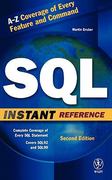Question
2. Complete the createFish() function, which takes a single string argument in the form: species name color weight where each field is separated by a
2. Complete the createFish() function, which takes a single string argument in the form: species name color weight where each field is separated by a single space (assume that the species and name are always single-word values). This function should create and return a new Fish object whose attributes are based on the contents of this string. Note that the fields of the string are in a slightly different order than the argument list of the Fish class, and that the weight value must be converted from a string to a float value before the new Fish is created.
4. Finally, complete the fillAquarium() function. This function takes two arguments: a string representing the name of a (plain text) data file, and a positive (non-zero) integer representing the tank capacity in gallons. It returns a new Aquarium object. fillAquarium() does the following: (a) It creates a new Aquarium with the specified capacity. (b) It uses a loop to open the specified data file. For each line in the data file: The function calls createFish() with the current line to get a new Fish. The function attempts to add the new Fish to the Aquarium object. (c) It returns the new Aquarium.
Step by Step Solution
There are 3 Steps involved in it
Step: 1

Get Instant Access to Expert-Tailored Solutions
See step-by-step solutions with expert insights and AI powered tools for academic success
Step: 2

Step: 3

Ace Your Homework with AI
Get the answers you need in no time with our AI-driven, step-by-step assistance
Get Started


